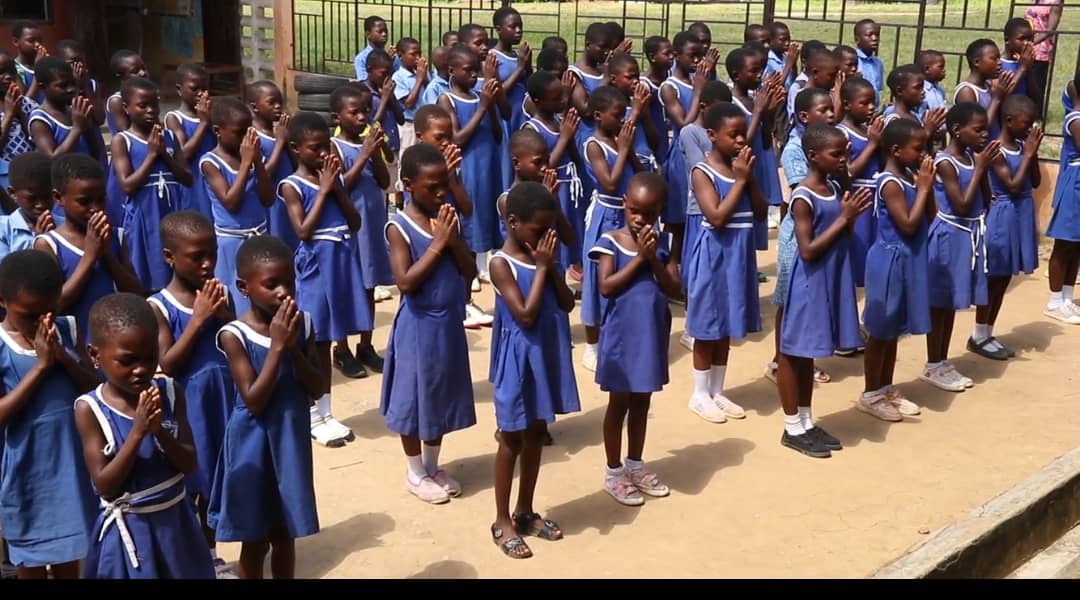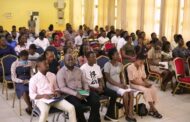Asikasu and neighboring farming communities in New Juaben North, Eastern Region, find themselves in the grip of early childhood educational crisis—a dire need of dedicated Kindergarten (KG) classrooms at Asikasu Presby Basic School.
This deficiency is obstructing children’s access to crucial early childhood education, impeding their overall development and preparedness for primary school.
A staff and storerooms, currently serve as classroom for a few children of school going age while others wandering due to lack of space.
Headteacher og Asikasu Presby Basic School Clementina Ahenkwa Mensah reveals the gravity of the situation, emphasizing that the absence of a permanent classroom hampers admissions for eager young learners from surrounding farming communities.
She said the current makeshift arrangement is untenable, affecting the ability of KG pupils to engage in normal classroom activities.
Parents in Asikasu and nearby farming communities, including Wurapong, Korkoso, Asikasu Central, and Wurobonso, express deep concern that their children may be left behind in this educational disparity.
They stress that the solution lies in critical infrastructural investments, advocating for the construction of a dedicated KG block at Asikasu Presby Basic School.
Joseph Sagmor, chairman of the Parents Association, highlights the community’s unsuccessful attempt to build a KG block due to financial constraints.
He notes the adverse learning conditions, with children sometimes exposed to rain, leading to closures and safety concerns.
Globally, the Education 2030 agenda and Ghana’s National Education Strategic Plan strive for inclusive early childhood education.
Aligned with SDG target 4.2.4, the goal is clear: by 2030, every child should have access to quality early childhood development and pre-primary education.
As Ghana progresses with initiatives like the Free and Compulsory Universal Basic Education (fCUBE), the challenges faced by communities like Asikasu and surrounding farming areas underscore the urgency of targeted investments in education infrastructure to realize the vision of inclusive and quality early childhood education.
Residents are hopeful that the intervention of nonprofit organizations and corporate entities could provide the much-needed support in establishing suitable KG classrooms, ensuring that the school-going age children in the rural area have equal opportunities for quality education.
Source:Mybrytfmonline.com/Obed Ansah




















































